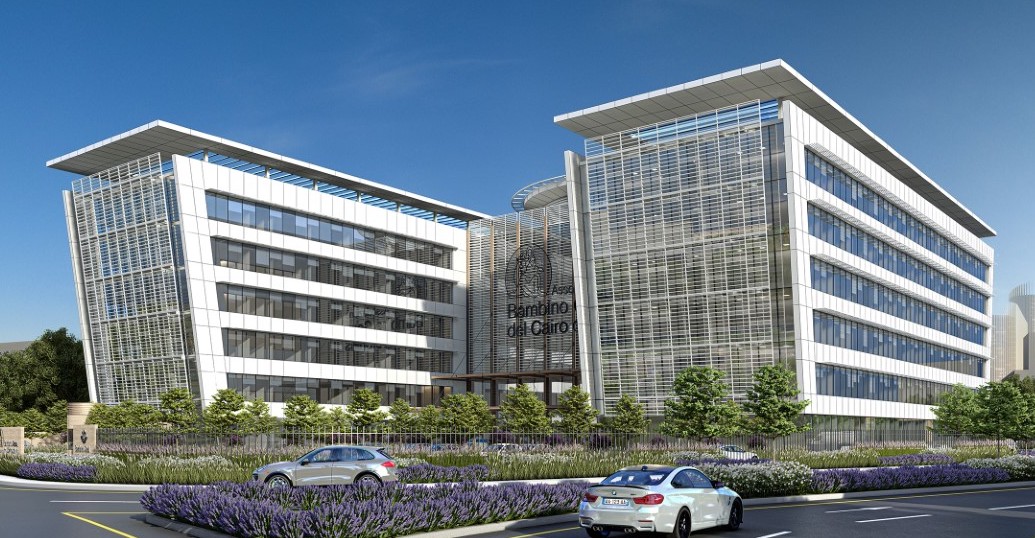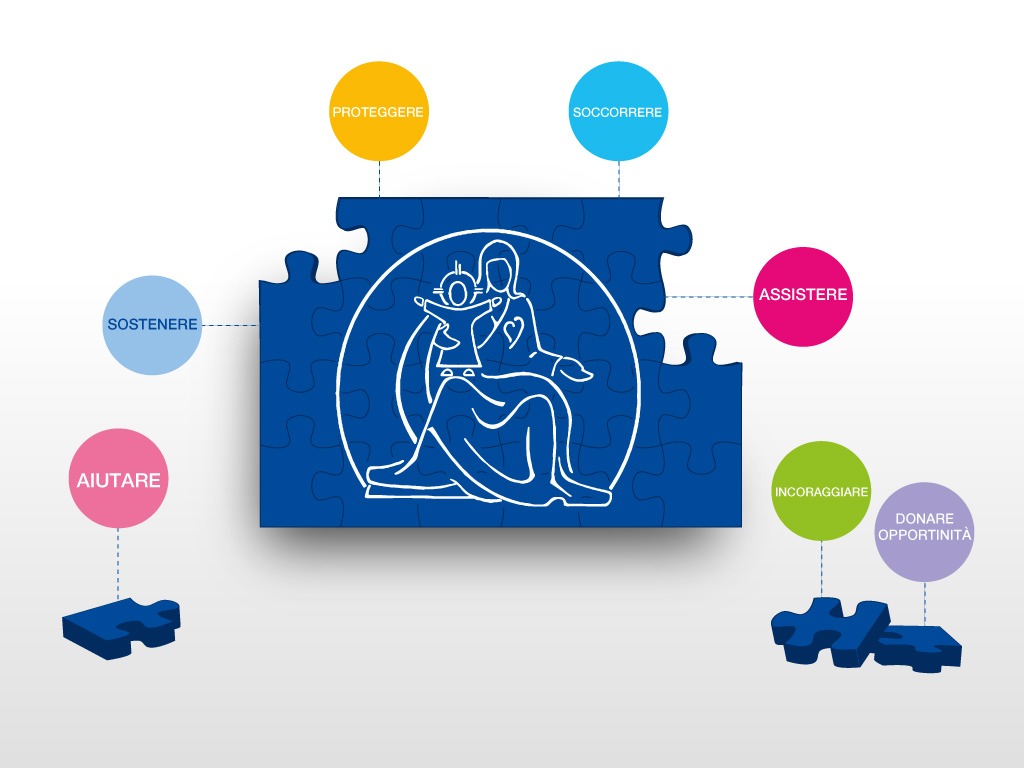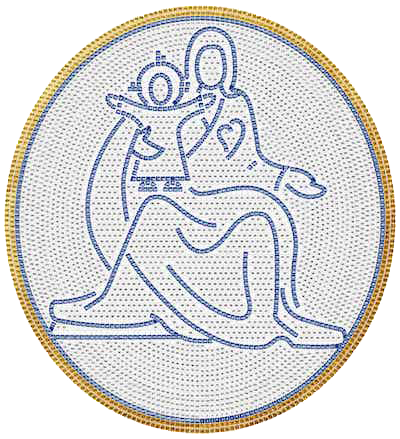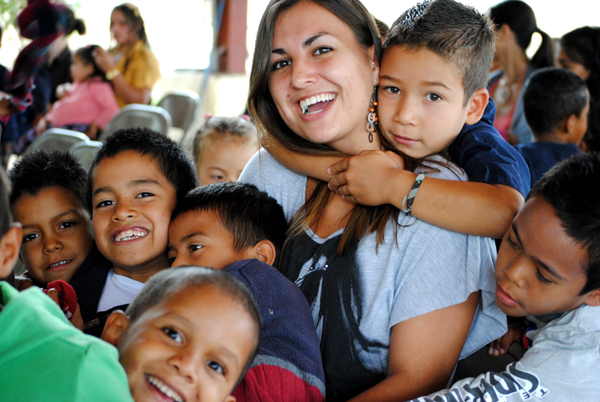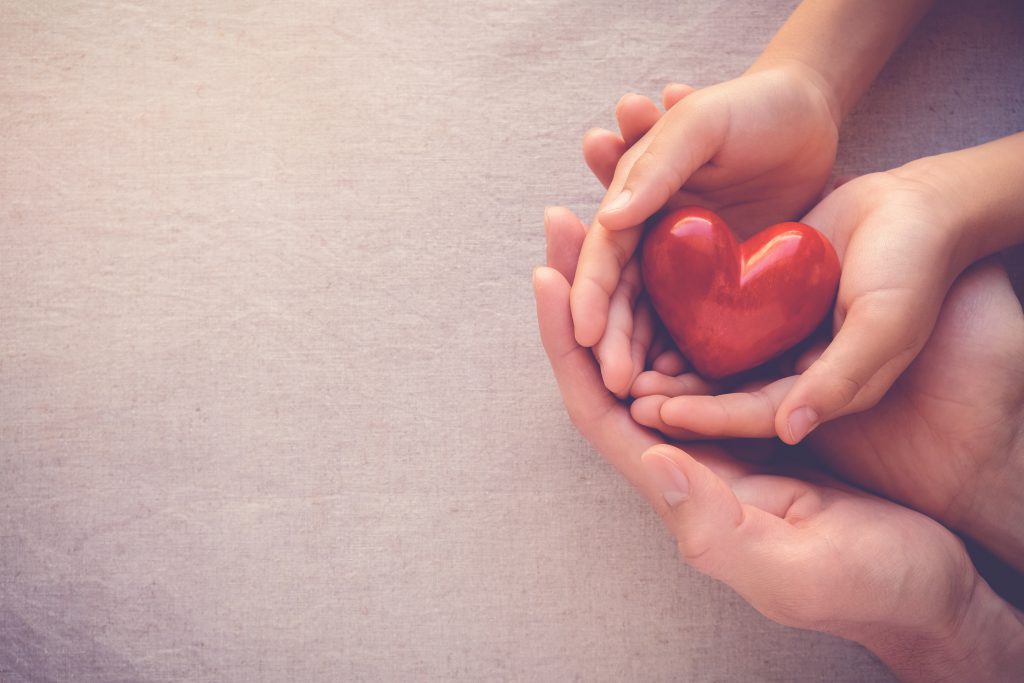The Bambino Gesù Women’s and Children’s Hospital
The Bambino Gesù Women’s and Children’s Hospital will be owned by the Coptic Catholic Church of Egypt and will provide health care services to children in need. The hospital will also provide health care services and accompaniment to pregnant women from the time they have conceived until they have been discharged from the facility.
The Hospital will be located in Cairo, Egypt, in the area defined as “New Administrative Capital”[1], which initially is expected to have a population of approximately 5 million people, and then reach an overall population of 7 million[2].
The new hospital would be the first – and only one to date – health care institution of the Catholic Church in the New Administrative Capital of Egypt. It would become a center of reference also for non-Catholics, who would trust the international reputation of the Bambino Gesù Hospital of Rome, increasing in turn the overall confidence in the institutions established and managed by the Catholic Church.
INITIATIVE’S ORIGINS
The initiative of the Bambino Gesù Women's and Children's Hospital stems from the desire to guarantee both basic and advanced medical care to every child in need and to offer health care and accompaniment to future mothers, all in a context, like that of Egypt, which is both characterized by a growing demographic trend but also by a high mortality rate of women and children.[3]
OBJECTIVES OF THE PROJECT
The objective of this project is to create in Egypt a model women’s and children’s hospital dedicated to provide pediatric and maternity health care services in appropriate facilities, using cutting-edge technology and evidence-based and up-to-date protocols and procedures, with ongoing attention to the quality of the services provided by highly skilled and competent medical personnel.
In order to create a medical institution of excellence, the new hospital will avail itself of the support of the Bambino Gesù Children’s Hospital in Rome, a worldwide known hospital, highly specialized in pediatric.
The Bambino Gesù Women's and Children’s Hospital will also contribute to strengthening the healthcare network on Egyptian territory that the Coptic Catholic Church offers to all Egyptians without distinction. The hospital will be configured as a technologically advanced structure connected to the Bambino Gesù Hospital in Rome. At the same time, the new hospital will give testimony to the commitment and work, already widely appreciated, of the Coptic Catholic Church in Egypt in the medical field.
DESCRIPTION OF THE HEALTH CARE SERVICES TO BE PROVIDED
There follows a description of the medical and health care services, personnel and equipment proposed for the Bambino Gesù Women’s and Children’s Hospital. This description is based on the expectations expressed by Egyptian medical and healthcare professionals.
The Bambino Gesù Women’s and Children’s Hospital wants to establish itself as a highly qualified and specialized healthcare facility dedicated to women and children.
1) Mothers: accompany them in the three phases of gestation
a. Preconception.
b. Pregnancy.
c. Childbirth and discharge of the mother and infant.
In the preconception phase, primary preventive measures will be adopted to promote the health of future parents with the aim of reducing the risk of malformation of newborns. Based on the parents’ family history, provisions may be made for appointments with a geneticist and, as the case may be, for prescribing the future mother with a daily intake of folic acid in order to significantly reduce the risk of congenital pathologies of the newborn.
During the period of pregnancy, secondary preventive measures will be taken to identify congenital diseases and defects through non-invasive (Ultrasound) and invasive (Amniocentesis, Villocentesi) prenatal diagnosis techniques.
In the context of preconception and prenatal care, genetic diagnosis will be carried out, including non-invasive screening tests (NIPT) like the BI-TEST, the most recent neonatal test for establishing the probabilities that the fetus is affected by autosomal trisomy, in order to reduce the use of invasive diagnostic tests.
At the time of delivery, treatment will be provided promptly for children born with congenital pathologies.
The healthcare personnel of the Bambino Gesù Women's and Children's Hospital will continue to assist and to be significantly present throughout the post-natal and discharge phase during which, whenever necessary, they will provide rehabilitation treatment for the child as well as education and training for families.
2) Babies and children: never alone
The presence of the mother, important at all ages, is essential for premature babies who have lost the protection and comfort of the womb too early. In order to ensure the closeness between the mother and the newborn 24 hours a day, the Bambino Gesù Women's and Children's Hospital will offer well equipped, comfortable single rooms, where mother and child can stay together. This solution has important benefits for the newborn, who can "recover" more quickly and thus remain hospitalized for a shorter period of time.
Welcoming the families of sick children will also be an integral part of the medical services and therapies offered by the Bambino Gesù Women's and Children's Hospital. [I cut the “forest image” because it doesn't work well in English]. Because being admitted to a hospital can be overwhelming for a child, the reassuring presence of parents is always important. Indeed, it is being close the mother and father that will often allow the child to overcome feelings of fear, helping him to enter more quickly into a trustful relationship with the healthcare professionals who work in the hospital.
In particular, the following have been provided:
a. The Neonatal Assistance Service - Nursery
The nursery or neonatal unit is located on the 3rd floor within the hospital’s births wing and in structural and functional continuity with the obstetrics wing. The nursery welcomes newborns (>34 weeks of gestation), allows for neonatal visits, and has space for two incubators and for the babies’ beds. During the stay of mothers and newborns at the nursery, all organizational, structural and cultural measures are guaranteed to encourage rooming-in and the promotion of breastfeeding, according to the most recent scientific evidence and guidelines in the neonatal field (World Health Organization). Furthermore, the direct access to healthcare professionals will allow mothers/families to convey their needs and doubts and to find the most appropriate answer. There will also be the presence of an obstetrician/nursing specialist for possible puerperal complications.
b. Medical Treatment for Children
The Bambino Gesù Women’s and Children’s Hospital provides health care to children through specialized professionals and medical instruments and technology in the different areas of diagnostics and treatment:
- Emergency Room care
- Analysis Laboratories
- Outpatient appointments and consultations for diagnosis and treatment (Pneumology, Orthopedics, Cardiology, Gastroenterology, Otolaryngology, Ophthalmology, Audiology, Dentistry, Dermatology, Allergies, Speech Therapy, Toxicology, Traumatology, etc.)
- Diagnosis and treatment through medical instruments and technology (Radiology, Ultrasound, CT etc.).
SURFACE OF THE LAND AND SIZE OF THE HOSPITAL
The lot where the Bambino Gesù Women’s and Children’s Hospital will be built has the following characteristics:
The total surface of the lot is of 10.000 square meters. However, due to building regulations in the new capital, only 40% can be used for the actual building, while the remaining 60% must be used for green areas and other services.
The size of the building of the Bambino Gesù Women’s and Children’s Hospital will be of 4.0000 square meters, and it will be a seven story building with an underground floor, a basement, a ground floor and 4 other floors.
TIMING
The construction will take place between 2022 and 2025.
[1] http://www.acud.eg/ e https://www.cubeconsultants.org/capital-cairo.html
[2] The new city is to be located in the Cairo Governorate, 45 Kilometers (28 miles) east of Cairo and just outside the second greater Cairo ring road, in a desertic area halfway to the seaport city of Suez. According to the plans, the city will become the new administrative and financial capital of Egypt, housing the main government departments and ministries, as well as the House of Parliament and foreign embassies. On 700 square kilometers (270 sq mi) total area, it would have a population of five million people, though it is estimated that the figure could rise to seven million.
[3] These situations are related, as reported in a 2017 UNICEF study , to a series of preventable causes related to the presence of various pathologies (pneumonia, diarrhea, anemias), to inadequate hygiene, to absence for future mothers to take adequate prenatal care or birth assistance: “Levels and Trends in Child Mortality - 2017” - Rapport UNICEF

